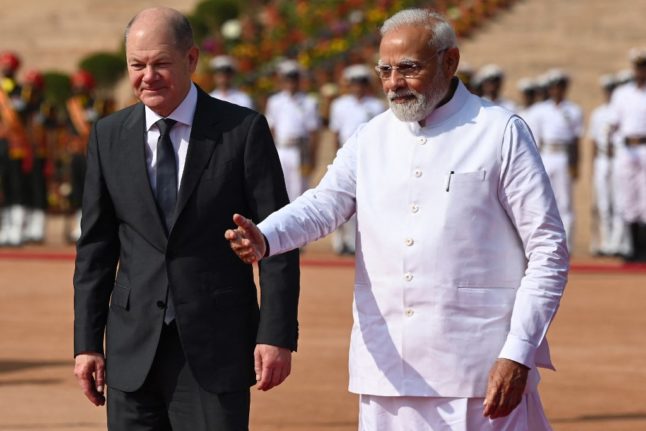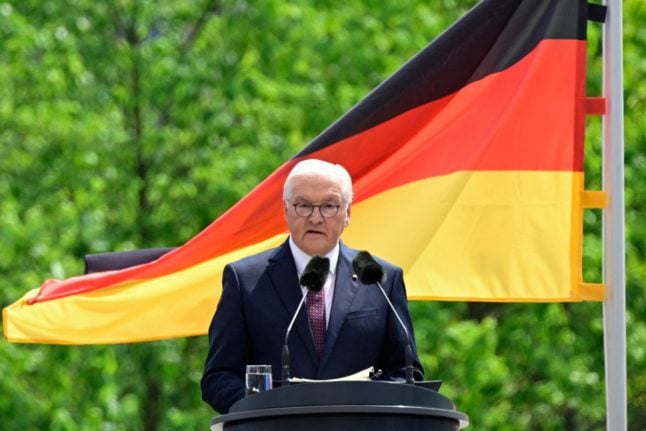“We want to further strengthen our bilateral relationship with India and our cooperation on global issues, such as mitigating climate change and transforming our economies in a just, green and sustainable way,” Scholz told the Times of India in an interview.
“There is huge potential for intensified cooperation, in sectors such as renewables, hydrogen, mobility, pharma, digital economy, and many more,” Scholz told the paper.
Scholz, accompanied by executives from big German firms like Siemens, met Prime Minister Narendra Modi in New Delhi and was due to head to Bengaluru to visit German software firms including SAP on Sunday.
Scholz said he wanted progress towards a trade deal between the European Union and India that has long been held up by disagreements on tariffs and access for Indian workers to Europe.
“I am in favour of applying more pressure,” Scholz told reporters. “In recent years there have been periods when really not much has happened. My impression is that this is changing.”
Scholz was due to discuss a bid by Germany’s Thyssenkrupp Marine Systems to build six submarines in India in a deal reportedly worth several billion dollars.
Ukraine war
The two sides also differ on the Ukraine war, with India refusing to condemn Russia’s invasion at the United Nations and ramping up purchases of oil from its biggest supplier of arms.
“We talked about the whole situation and exchanged very openly our assessments on the concrete situation that Russia’s attack on Ukraine has created,” Scholz said after meeting Modi.
“I believe one can say that no one here (in India) is under any illusions, including the government, that this is an offensive war started by Russia in order to acquire a part of its neighbour’s territory,” he said.
“I think that it is important that so many countries recently again very clearly condemned Russia’s offensive war (at the UN). But we should know… that also most countries that didn’t vote (in favour of UN resolutions) view and judge it as an offensive war,” he said.
He also said that he and Modi discussed China’s 12-point paper released on Friday calling for a “political settlement” to the crisis, and that it has “both light and shadow”.
“There are things that are noticeably correct, for example the renewed condemnation of the use of nuclear weapons. Missing, from my point of view, is a recognisable line that says there must be a withdrawal of Russian troops,” Scholz said.
Scholz did not say whether he raised concerns about minority and media rights in the world’s biggest democracy during his talks with the Hindu nationalist premier.
Last week Indian tax officials raided the local offices of the BBC in a move rights groups linked to a documentary by the British broadcaster about Modi’s role in deadly sectarian riots in 2002. The Indian government denied the two were linked.



 Please whitelist us to continue reading.
Please whitelist us to continue reading.
Member comments